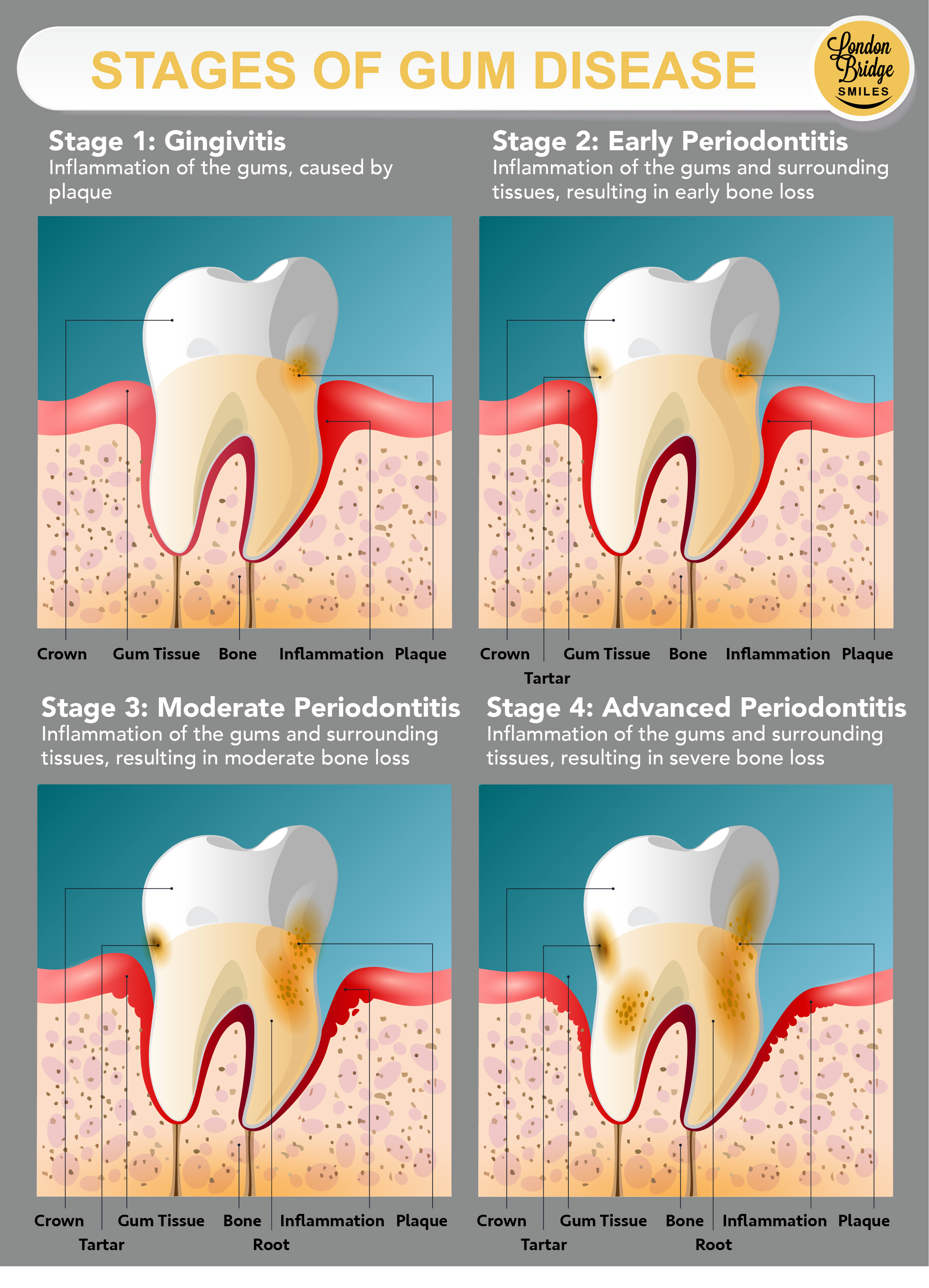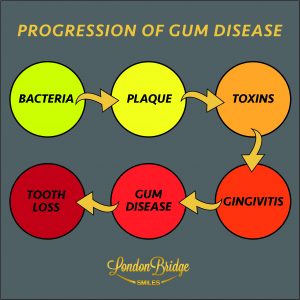There are many levels of cleaning when it comes to your teeth. Just as you would take your vehicle to a car wash and select the type of bath that your car needs, your hygienist inspects your teeth and your gums for the type of cleaning you need. Often, a cleaning is not JUST a cleaning.
Gum disease (periodontitis) is infection of the gum tissues that surround and support the teeth. It is ultimately caused by plaque buildup. The infection is usually painless, therefore you may not even know you have it.
These are the stages of developing gum disease and what can happen to your teeth and gums:
Bacteria form in the mouth from leftover food particles.
Plaque is a sticky film that develops as bacteria build up.
Toxins are created by the build up of plaque, and cause damage to teeth and gums.
Gums become red, swollen, and may easily bleed.
The gums and bones supporting your teeth become seriously damaged.
When teeth and bones become damaged, tooth loss can happen as a result.
Symptoms
In the advanced stages of gum disease, called periodontitis, the gums and bone that support the teeth can become seriously damaged. The teeth can become loose, fall out or may have to be removed by a dentist.
Symptoms to Watch out for:
- Gums that bleed when you brush your teeth
- Receding gums (loss of gum around a tooth)
- New spacing between teeth (caused by bone loss)
- Loose teeth
- tenderness, swelling or discomfort
- Bad breath that doesn’t go away
Treatment
Gum Therapy (also referred to as Scaling and Root Planing) – is the most effective way to treat gum disease and is very important to prevent the disease from progressing. Your dentist will use special tools to clean between your gums and teeth, down to the root. To ensure your comfort throughout the procedure, local anesthetic may be used to numb the gums and the roots of your teeth while the procedure is performed.
Continued checkups with your dentist and routine care at home can prevent gum disease, as well as the eventual bone and tooth loss that can follow as the disease progresses.
If you are experiencing any of the signs of gum disease, please contact our office at 757-340-8805 to seek treatment and avoid further advancement of the disease.



